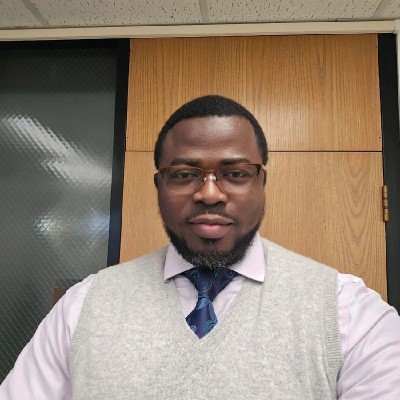Ayodele D. Dada
Dweck-Walton lab. ayo.dada@stanford.edu
Stanford California.
Lateritiam inveni, marmoream reliquit - Augustus Ceasar.

Hi there and welcome to my website!
What I Do
I am a Psychology Ph.D. candidate in the Dweck-Walton lab at Stanford University where I work with both Dr Carol Dweck and Dr Greg Walton. I am also a Knight-Hennessy Scholar at Stanford University. Knight-Hennessy scholars gain specialized knowledge in their Stanford graduate program and enhance this expertise by engaging with various disciplines and cultures within the Knight-Hennessy Scholars (KHS) community. Scholars collaborate and prepare to address global issues such as climate change, healthcare, government and policy, and education.
What does my work entail?
As a child, I remember family members implying that it would be a catastrophe for a girl to score better grades than me in school even if her ability and preparation were superior to mine. In college, my female friends who excelled in engineering endured the mortification of having their successes attributed to them having “a man’s brain”. Also, my uncle graduated from a good university but my mother, his sister, did not have such an opportunity. Because I knew that my experiences suggested a much more serious problem affecting the educational prospects of girls around the world, I decided to make this the focus of my research. In fact, the Global South has a huge number of out-of-school children, most of whom are girls. Gender gaps in median years of school attendance are as large as 6 years in populous countries like Nigeria and even when girls begin school, many are not able to continue or complete high school. In Northern Nigeria where these disparities are more concentrated, parents perceive educational paths as competitive with their culturally appropriate gender roles for girls. For instance, they expect girls to get married early and this is often not compatible with her continuing her education.
In my research, I draw on the model of psychologically wise interventions to develop an intergenerational legacy intervention that represents education as a tangible and communally valuable legacy which can be bequeathed to one’s grandchildren through one’s children. I also introduce the theme that education could enhance the fulfilment of culturally desired gender roles; educated girls could become better mothers and because of this, the benefits of education are transmitted through time to their grandchildren. My approach has the potential to support public policy in a problem space which has been perennially intractable. The insights gained from my work can also inform careful replications in other regions of the world who have a similar cultural profile because most people in the countries of the Global South live in comparable cultural contexts and framing education as a family legacy is likely to resonate with them. Recently, we are also exploring how a recalibrated version of these interventions can be used to increase parental endorsement or support for all types of higher education (including technical training and skills certifications) in the US given the precipitous gaps between high school completion and higher education attainment across the country. We also emphasize that this parental support need not be financial but could be just as meaningful to the child.
My Background
Before my Ph.D., I earned a Bachelor’s degree in Psychology from the University of Lagos, Nigeria, where I graduated as valedictorian and broke a 54 year old academic record at the institution. Because of this achievement, I was named one of Ten Outstanding Young Persons of Nigeria and received special recognition for academic achievement by the House of Representatives of Nigeria.
I then proceeded to work for Procter and Gamble in Business Operations in the Supply Chain Unit before proceeding for a brief stint with the Central Bank of Nigeria managing security inventory with the Security Services Unit. Later, I returned to the University of Lagos as a graduate researcher before moving to Stanford University for my Ph.D.
Now, as a researcher, I use ideas like the growth mindset to create psychologically wise interventions aimed at reducing opportunity gaps in education. A key feature of my work is sensitivity to the situation and contexts within which these gaps occur because I bring an international perspective to my work.
What I do for fun
I love to read fantasy novels such as The Wheel of Time, Malazan Book of the Fallen, Stormlight Archive, Lightbringer, among others. These books are massive and that is usually a criterion for me.
I also love to listen to anything produced by Thomas Bergersen and Hans Zimmer when I’m not enjoying some Afrobeats.
Finally, I’m a huge fan of FC Barcelona (both men and women).
selected publications
- MultigroupTesting the Validity of the Multigroup Ethnic Identity Measure (MEIM) on a Nigerian SampleInternational Psychology Bulletin, New Jersey. More Information can be found here , 2016